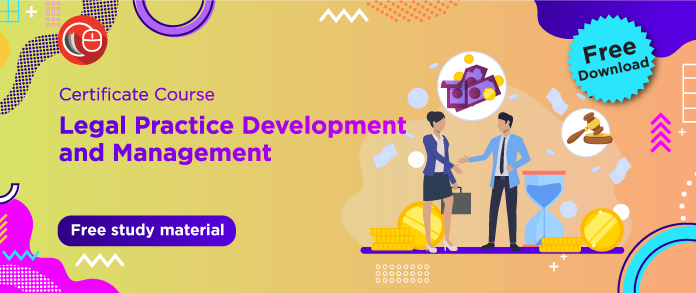Once I was selected for an interview with UNHCR. It felt like a dream come true.
Just to walk into their tightly guarded office in Delhi felt thrilling. There were just 5 candidates selected and I was one of them. The test was good and I felt utterly confident when I walked out after an hour-long interview with the seniors at UNHCR. They said I would hear an answer for this job within 4-6 weeks from the interview date.
I eagerly waited. I waited for 4-6-8-12 weeks but I didn’t hear anything.
I could only contact them via email but I got no response for my follow-up emails.
After 6 months of waiting for their email, I made peace with the fact that I may have not been selected for the job and I started looking for answers.
I couldn’t settle with the fact that I had come so close to my dream and wasn’t able to achieve and I had no idea why?
After contacting seniors in the UN bodies on LinkedIn and Facebook some informed me that UN bodies prefer candidates who have done their post-graduate degrees from foreign universities.
That made me look back at the day I decided to do my LLM in India…
I was in my 5th year’s second semester when I decided to do LLM. Until then, I had never thought of doing a master’s degree before.
I was pretty determined that I wanted to do litigation, and I was advised by seniors and veterans of the legal field that LLM adds no value to lawyers in litigation.
So when my classmates were preparing for campus placements in college I was gleefully enjoying the freedom from the stress that no placement aspirations brought.
I had my path paved out for me – I was going to join the Senior Advocate in Bombay High Court with whom I had interned before. I will start as a baby litigator and gradually grow from there. The dream was to become a “Senior Counsel” in the Bombay High Court one day.
Having interned only at Bombay High Court before, a career apart from litigation for a lawyer was unthinkable. The only ones who didn’t work in courts were either working in law firms or teaching law in colleges.
Despite that, the UGC’s decision to introduce the one-year LLM tempted me. Why not spend one more year studying and bag that coveted LLM degree? What’s the harm if I can write the master’s degree next to my name?
I was too late to fill the CLAT-PG form, so the top NLUs were out of my reach. My determination for LLM wasn’t so serious that I would waste a year just to get into NLUs whose track record for LLM wasn’t as great anyway.
I didn’t undertake any research about LLM. I think I wasn’t even sure why I wanted to do LLM myself except for the degree itself.
This is my first regret.
So I decided to give the University of Pune’s LLM entrance exam and prepared for close to two months. More than 2000 candidates appeared and I managed to top the exam. I felt great!
Until then, University had just two specializations. I was pretty sure to choose Constitutional law since that would help me in litigation. However, after our batch got enrolled, University introduced two more specializations and one of them was International Law and Human Rights.
International Law was my favorite subject during my undergraduate studies. The electives, in-class moot subjects, moot court competitions were all in the international law field. The fact that there is no central body to impose laws or adjudicate them, intrigued me. However, the introduction of this specialization in my Masters put me into a dilemma again.
During my LLM admission, I was given preference everywhere – from choosing a specialization to getting a hostel room in the University, because of my rank. So I was given a choice to pick a specialization of my choice. However, I had no guidance as to how to choose a specialization for LLM.
Should I pick the subject that I like and study for one additional year or should I choose a subject that will help me in my career ahead?
I remember sitting in a cafe and making a pro-con list on tissue paper with the help of my undergrad friend. Both of us were naive and thought this was the best way to choose a specialization that managed to change my career forever.
I picked up International Law and Human Rights as my specialization and the winning argument was that you should study what you love. I have got my whole life of working in courts and one year of studying the subject I love would have no impact on that. This would soon become my second regret.
The problem with my specialization at the University of Pune was that it was too broad and I realized that only after I started pursuing it. I compared the syllabus of my University with others in India and abroad and I found that – the 4 subjects that I studied in my specializations were themselves a niche subject and in order to pursue a career in any of those subjects I would have to do another Masters in the chosen topic.
I completed my LLM and I decided I wanted to work in human rights or research.
However, when I reached the doorstep of my dream of working in a UN body I regretted the way I had pursued my LLM without proper research and guidance.
When I made the decision to do LLM, specialization was not even something I had given a second thought about until the new subjects were introduced. I had assumed I would do Constitutional law because that was the most preferred subject by seniors then.
Secondly, without correct guidance, I had no clue what was the impact of the LLM on my career until the time I didn’t get the UN job I aspired for since I completed my Master’s program.
Thirdly, I didn’t know of the international opportunities I would be eligible for and how it would become my doorway to do things unconventionally.

I imagine that my career choices would be different if I had been given a better insight into the best way to do my master’s degree 7 years ago.
I am sharing this with you so that you should not have to face what I went through before studying LLM.
There are many things that go into while making a decision to study LLM. Your family and friends may pour additional advice if you decide to do this LLM in a foreign country.
Not to forget, if it is an LLM abroad, arranging finances to fund this LLM becomes a family decision.
Stories of friends and classmates who were not able to secure a job abroad after finishing their LLM haunt you. But you also hear some who are working for international law firms and have become thought leaders in that field.
Check out this course being offered by LawSikho on Master of Laws (LL.M.) in Business Laws and Commercial Transactions in association with Warsaw Management University. Click here.
Students of Lawsikho courses regularly produce writing assignments and work on practical exercises as a part of their coursework and develop themselves in real-life practical skills.
LawSikho has created a telegram group for exchanging legal knowledge, referrals, and various opportunities. You can click on this link and join:
https://t.me/lawyerscommunity2
Follow us on Instagram and subscribe to our YouTube channel for more amazing legal content.






 Allow notifications
Allow notifications
